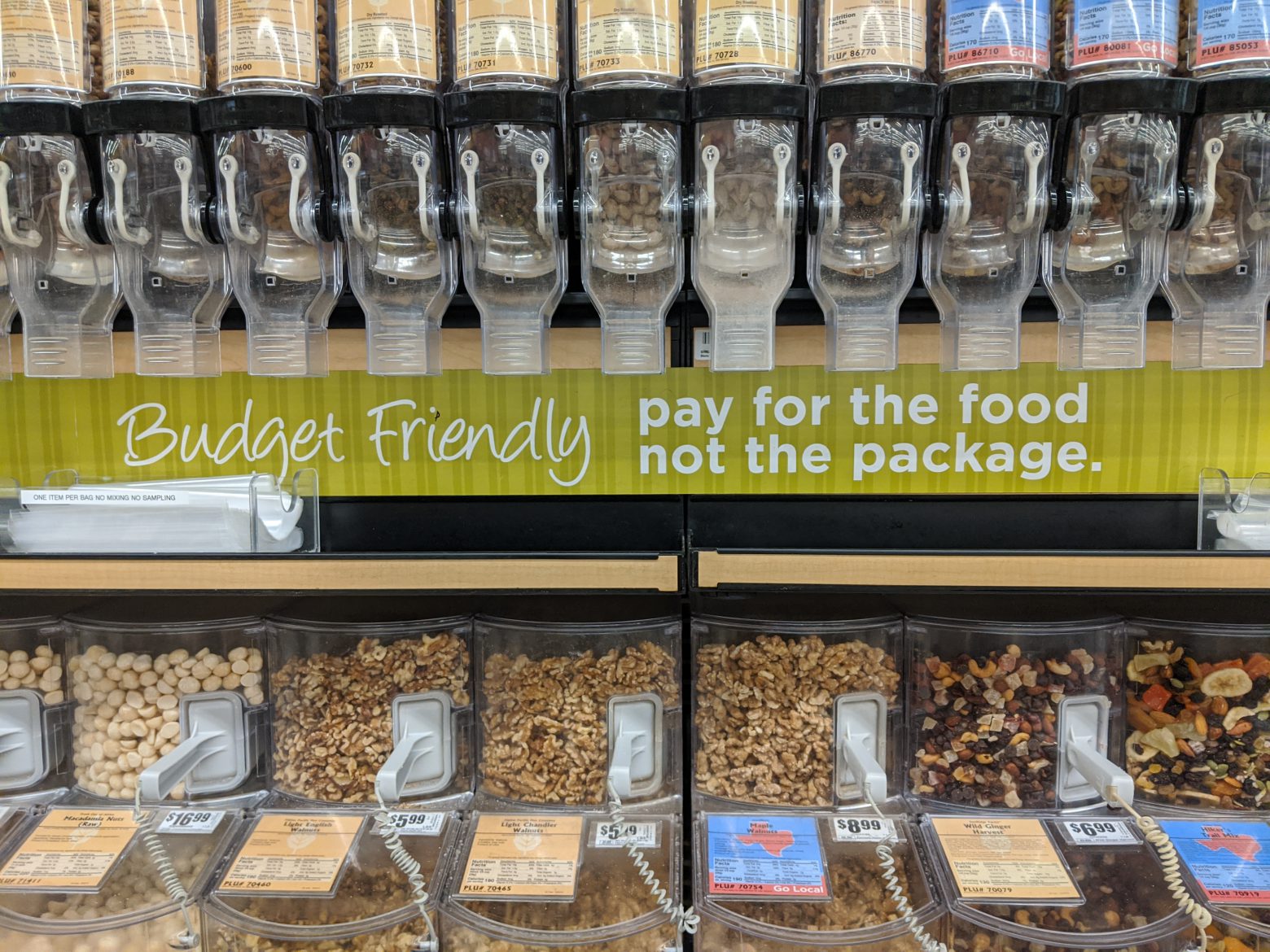This article originally appears in the Mueller Front Porch Flyer April 2021 edition.
Bulk Buying
Buying in bulk can help you save money and resources. Buying in bulk can mean two different things: 1) buying loose items from bulk bins in stores and 2) buying larger quantity packages.
With COVID, some stores have either closed their bulk bins or reduced what is offered. Traditionally you could take in your own container to certain stores and fill them up with loose items. Those stores usually carry paper bags or plastic tubs as an alternative to your own containers. With bins being closed and so much curbside pickup and deliveries, bulk bin shopping may not be feasible for you. They may not be available in your area to begin with. Also, some stores like HEB do not let you use your own container at bulk bins, requiring the use of single-use plastic zippered bags that then must be cleaned and recycled separately. If you are buying the same thing all the time, purchasing a larger package may be greener in the long run. Bulk bins are great for trying small samples/ quantities of items, but many times bulk bins are filled up with the same bagged and boxed items you get on the aisles. Not all bulk bin items are like that, but without asking the store what original packaging was used to fill up the bin and without watching employees refill the bins, you won’t know for sure.
Buying larger packages helps: 1) if you can afford to, 2) if you have the space to store items, and 3) keeping in mind the expiration date, should save you money and packaging. The price per ounce, pound, item etc. should be cheaper on a larger package than a smaller one. You’ll be using less plastic bags, boxes, pouches, etc. when you buy one larger item vs several smaller items.
Some stores calculate out the unit cost for you in parenthesis on their website under the total cost or on the store price tags. Otherwise you can do a quick calculation on your phone, calculator or paper.
Some great items to consider purchasing in larger quantities are:
- Grains, such as rice and oats, and beans
- Snacks; use a reusable container with a large bag vs single-use small snack packs
- Soap: cut big bars down into smaller ones with a chef’s knife and purchase larger bottles or jugs of liquid soap over small bottles.
- Toilet paper
- Protein powder: we buy 5+ gallon bags that we then reuse as trash bags
- Pet food and treats
- Baking ingredients





HEB has bulk sections that are great for trials and small portions.
You cannot bring your own container at HEB, they have plastic single-use zippered bags.
You can use your own container, we use a jar, or they have paper bags available.
These are from a few years ago so prices may differ.

We go through a ton of protein powder so we order the really big sizes. Saves money over the long run, we can recycle and reuse these, and we have the storage space.
Make sure to read the instructions carefully or research how to best store your bulk items to keep them fresher longer and get your money’s worth.
Some stores will order bigger containers for you if you ask them. You may also need to look higher or lower on shelves to find bigger options. Stores stock what they want to push at your eye level so you may need to look a little harder for savings. If there’s an item you like, check out the company’s website as they may offer larger sizes on their website they’ll ship.



